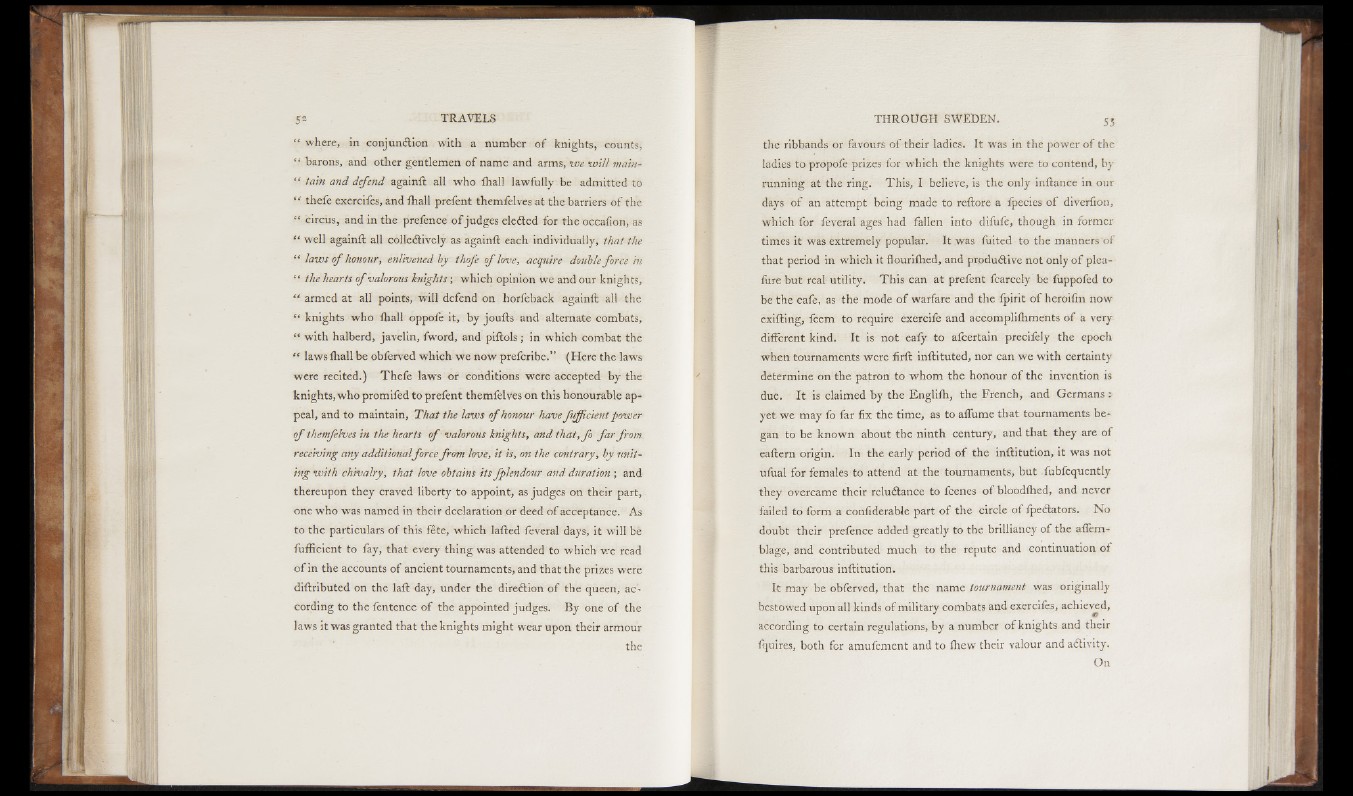
“ where, in conjun&ion with a number o f knights, counts,
“ barons, and other gentlemen o f name and arms, we w ill main-
“ tain and defend againft all who lhall lawfully be admitted to
“ thefe exercifes, and lhall prefent themfelves at the barriers o f the
“ circus, and in the prefence o f judges ele&ed for the occafion, as
“ well againft all collectively as againft each individually, that the
“ laws o f honour, enlivened by thofe o f love, acquire double force in
“ the hearts o f valorous knights; which opinion we and our knights,
“ armed at all points, will defend on horfeback againft all the
“ knights who lhall oppofe it, by joufts and alternate combats,
“ with halberd, javelin, fword, and piftols ; in which combat the
“ laws lhall be obferved which we now prefcribe.” (Here the laws
were recited.) Thefe laws or conditions were accepted by the
knights, who promifed to prefent themfelves on this honourable appeal,
and to maintain, That the laws o f honour have fufficient power
o f themfelves in the hearts o f valorous knights, and th a t,fo fa r from
receiving any additionalforce from love, it is, on the contrary, by uniting
with chivalry, that love obtains its fplendour and duration ; and
thereupon they craved liberty to appoint, as judges on their part,
one who was named in their declaration or deed o f acceptance. As
to the particulars o f this fete, which lafted feveral days, it will be
fufficient to fay, that every thing was attended to which we read
o f in the accounts o f ancient tournaments, and that the prizes were
diftributed on the laft day, under the direction o f the queen, according
to the fentence o f the appointed judges. By one o f the
laws it was granted that the knights might wear upon their armour
the
the ribbands or favours o f their ladies. It was in the power o f the
ladies to propofe prizes for which the knights were to contend, by-
running at the ring. This, I believe, is the only inftance in our
days o f an attempt being made to reftore a fpecies o f diverfion,
which for feveral ages had fallen into difufe, though in former
times it was extremely popular. It was fuited to the manners o f
that period in which it flouriffied, and productive not only o f plea-
lure but real utility. This can at prefent fearcely be fuppofed to
be the cafe, as the mode o f warfare and the ipirit o f heroifm now
exifting, feem to require exercife and accompliffiments o f a very
different kind. It is not eafy to afcertain precifely the epoch
when tournaments were firft inftituted, nor can we with certainty
determine on the patron to whom the honour o f the invention is
due. It is claimed by the Engliffi, the French, and Germans :
yet we may fo far fix the time, as to affume that tournaments began
to be known about the ninth century, and that they are o f
eaftern origin. In the early period o f the inftitution, it was not
ufual for females to attend at the tournaments, but fubfequently
they overcame their reludance to fcenes o f bloodffied, and never
failed to form a confiderable part o f the circle o f fpectators. No
doubt their prefence added greatly to the brilliancy o f the affem-
blage, and contributed much to the repute and continuation o f
this barbarous inftitution.
It may be obferved, that the name tournament was originally
bestowed upon all kinds o f military combats and exercifes, achieved,
according to certain regulations, by a number o f knights and their
fquires, both for amufement and to ihew their valour and aClivity.
On